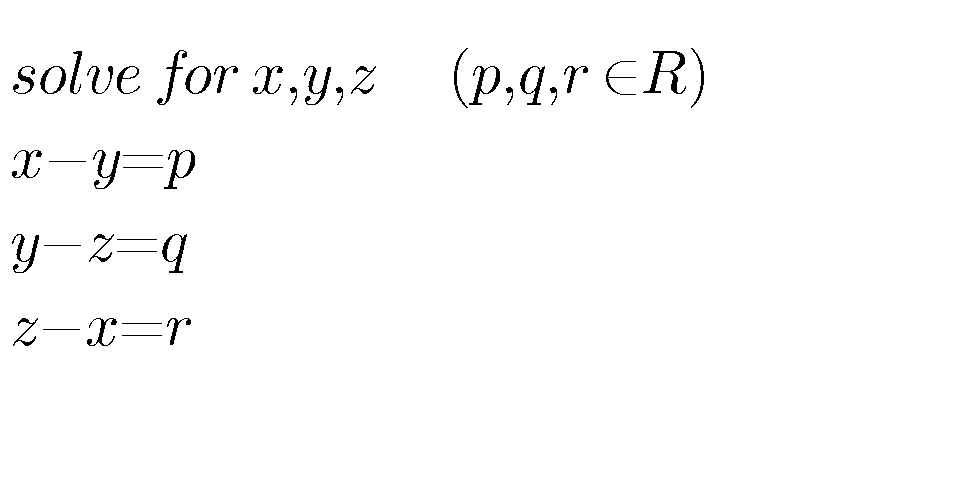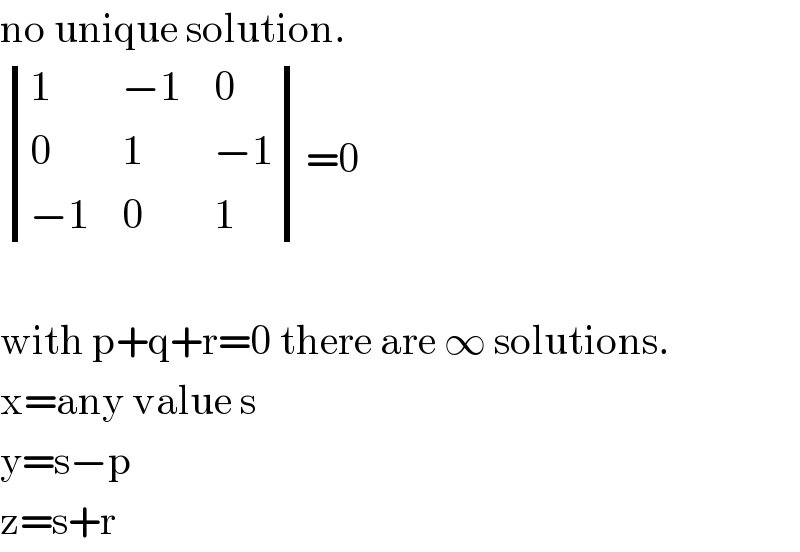Question Number 16029 by b.e.h.i.8.3.4.1.7@gmail.com last updated on 17/Jun/17

Commented by mrW1 last updated on 17/Jun/17

$$\mathrm{no}\:\mathrm{unique}\:\mathrm{solution}. \\ $$$$\begin{vmatrix}{\mathrm{1}}&{−\mathrm{1}}&{\mathrm{0}}\\{\mathrm{0}}&{\mathrm{1}}&{−\mathrm{1}}\\{−\mathrm{1}}&{\mathrm{0}}&{\mathrm{1}}\end{vmatrix}=\mathrm{0} \\ $$$$ \\ $$$$\mathrm{with}\:\mathrm{p}+\mathrm{q}+\mathrm{r}=\mathrm{0}\:\mathrm{there}\:\mathrm{are}\:\infty\:\mathrm{solutions}. \\ $$$$\mathrm{x}=\mathrm{any}\:\mathrm{value}\:\mathrm{s} \\ $$$$\mathrm{y}=\mathrm{s}−\mathrm{p} \\ $$$$\mathrm{z}=\mathrm{s}+\mathrm{r} \\ $$
